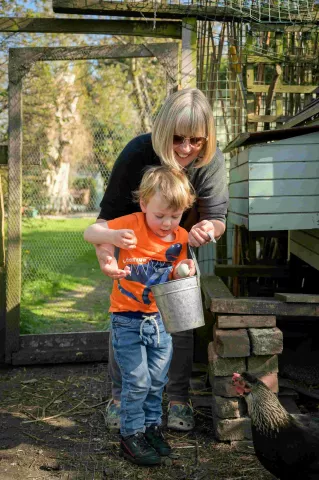You can ask for an appeal online or you can use a paper form.
You can find both at Submit your appeal on GOV.UK
Both are easy-to-use and understand. If you use the online version, a record of what you have said is sent to your email address. If you use the form, try to keep a copy, or take a photo of each page with your phone.
No matter which you use, there are three things that you should be aware of.
- You need to explain what you disagree with and why. If you used our mandatory reconsideration request tool to produce a letter, and your argument is still the same, you can just copy and paste that on to the form. (You probably have a copy in your email, or it will be saved in your Advicenow account).
If you have not used our tool, look at your decision notice and the list of daily tasks on page x. For each explain all of the difficulties that your child has with that task and the help that they need. Remember to explain that this is more than another child of the same age would need. If your appeal is not within one month, you should appeal anyway but explain why the delay was unavoidable or a result of your child’s disability (for example, if you were unable to deal with it until now because meeting your child’s care needs takes up all your time).
- Choose to attend the hearing. You will be asked whether you want to attend a hearing or whether you want the case to be decided on the papers alone. Almost everybody wants to choose the paper hearing because it seems less scary. However, you are much more likely to win if you have a chance to speak to them. Don’t worry, it will not be nearly as frightening as you might think. Now many hearings are happening via video – so you may not have to actually ‘go’ anywhere.
When you ask for an appeal online, you are asked if you would like to be able to save the appeal and continue later. In order to do this, you will need to set up an account. If you say yes and provide your email address, you will be sent an email enabling you to register for the Manage Your Appeal service. This service lets you keep track of how your appeal is progressing, and you can use it to upload evidence (including audio and video evidence if you want to). It will send you texts or emails to let you know that the DWP have responded to your appeal, to confirm evidence has been received, and when your hearing date has been scheduled. See How to prepare for the DLA appeal hearing for other ways to sign up.








